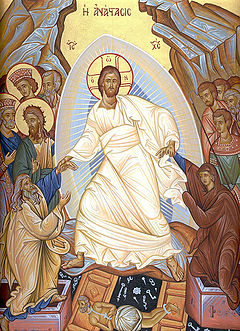Meriweather
Not all who wander are lost
- Oct 21, 2014
- 17,228
- 3,545
- 165
Many Christian observances have pagan roots as the early Catholic Church sought to incorporate the many pagans into their clutch. Since pagans naturally didn't want to, the Church had to sweeten the deal by letting them bring in their various celebrations like Easter, Christmas, etc.
Not true. Many seasons of the year have been celebrated by different cultures for different reasons. No one had to "sweeten" any "deal." On the other hand, we do see decorations and games crossing cultures and being used for different reasons in different celebrations.
In my family, atheists celebrate both Christmas and Easter with those of us who are Christians. Funny thing is, they never insist they are celebrating a pagan version of the holiday. Rather like birthdays that are not their own, they gather to be with family and enjoy family interactions. The reason doesn't matter to them, being with family does.
The Pagan Origins of Jesus Christ and Christianity
...Wanna keep talking or just admit you were wrong, have been corrected and go on with life?
I'm not wrong. Try looking at scholarly reports and originals of many mythological stories, and you will see this for yourself. Then add the history and cultures where mythology and various religions originate and you will be convinced.
I have always had a strong interest in both religion and mythology. Take any of your stories (Egyptian, Greek, Roman, Norse) and you will find the differences between any of them and Christianity more interesting than trying to force similarities to fit the same mold. The disservice to all is equal--why is it that uniqueness, where ever it surfaces, there are those who insist on stomping it into a boring uniformity?
Atheist comparisons to mythologies and religions are pathetic at best. They should at least do a little more in depth study on one, even if they are too lazy to do it on both.
Kinda figured. Takes a mature adult to admit when they're wrong.
Grin. Likewise. When you've done the studies I have, we might find more of a common ground. What frosts me the most is the mangling of Egyptian, Greek, Roman, and Norse mythologies in order to make them seem closer to Christianity. Let ancients stories alone! Don't rewrite them to fit modern agendas!



